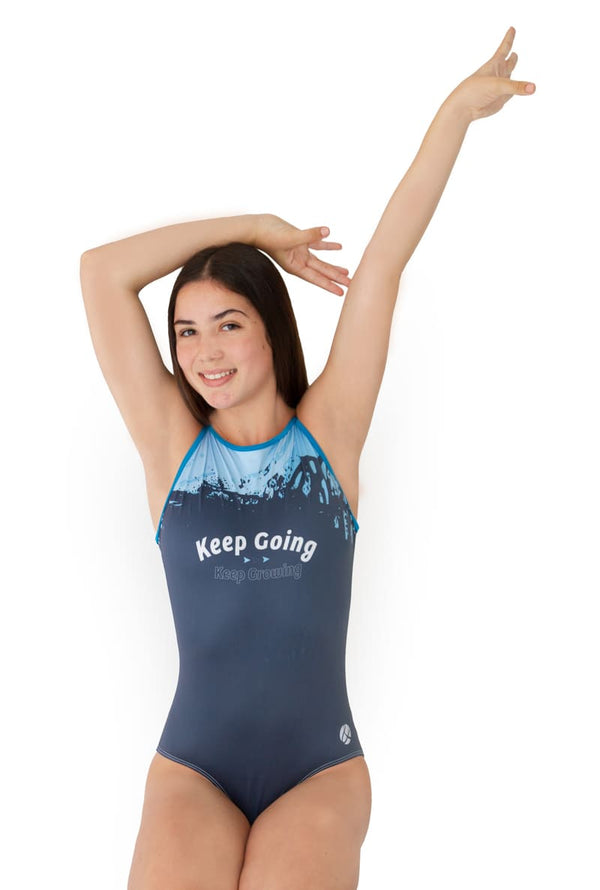Free Shipping on all orders over $75
Free Shipping on all orders over $75

5 Reasons Why Gymnastics Is One of the Toughest Sports
November 24, 2021 5 min read
This list is just the beginning of your adventures in gymnastics! Gymnastics is miraculous, full of mystery, technique and artistry, and trumps many other sports for fan following. The reasons are forthcoming. Truly, gymnast’s skills are specialized and hard-won. These athletes need balance, speed, strength, flawless hand-eye coordination and a ton of explosive physical power.
Gymnasts are especially specialized athletes. For instance, in competition, male gymnasts move from the pommel horse, to the rings and to the vault. Challenging? Incredibly! And a hard set of skills to transfer into without injury. Women’s routines soar with artistic strength, and boast a worldwide, massive fan following. Using unique skill sets can vary somewhat per competition performance, which requires its sportsmen to diversify their movements, and also creates opportunities to display varied talent, from event to event. Remember when you fell in love with gymnastics as a kid? Remember your favorite team or gymnast from when you were growing up, and how much you loved it? There’s no denying that the sport of gymnastics is magic.
1) It's Scary
Part of the reason gymnastics is so popular is because the moves, or “tricks” performed are almost unbelievable. They are as hard as they appear. However, because they are so polished, we forget to remember that behind every routine are thousands of hours of practice. It can be guessed that something understandable, that a mental block (i.e. about backward twisting or tumbling), can railroad a gymnast’s career. Wipeouts happen (as spectators, we’re attracted to the suspense of the trick!). The mental and emotional aspects of the sport seldom get airtime, but are important to mention, in the quest to understand the sport and sportswomen. Every gymnast has a story of a near miss or a freak injury caused by a skill gone awry. Gymnastics is suspenseful, and fear is something that gymnasts learn to surmount more and more with time. One of the reasons gymnastics is so popular is that we get to route for the triumph against impossible odds.

2) Training Is a Full Time Job
Top gymnasts practice as many as 12 hours a day! That’s more than a CEO at a desk job! Elites often train about 40 hours a week. However younger, less experienced gymnasts, can put in even more weekday hours. Beginner competitors at Junior Olympic levels 4, 5 and 6 routinely have three or four practices a week, each one two or three hours long. These figures point to the gymnast's need for rigor and dedication – they sure have a lot of it! There are many advantages to practicing with such frequency, quantity and quality.
With routine and repetition, muscle memory tendon elasticity and ligament strength regenerate and build quickly, increasing speed in recovery from injuries. The younger you start, the more time to condition and prepare your body for wear and tear and strain you have. Even though gymnasts have a strong relationship with their practice, they compete when still very young, for it is at this age that it is more easily trained into beneficial habits. The younger you are when you confront attitudinal challenges, in competition and performance you have more opportunity to confront and vanquish your demons, to where you learn and exhibit your great skill and talent. When increasing skills, sportsmen enter the unknown, which ironically, propels them up into more serious levels of competition and performance. Training is the key to success and the more that you can “love the burn”, the more the burn will love you. The process supports starting early.

3) You Start To Train Very Young
There are a few sports that start for the young (Gymnastics, Ballet), and gymnastics is one of these. Many kids get their start at age two or three in their first pre-school gymnastics classes. However, many coaches say that it's better to wait until your child is 5 or 6 before enrolling them in a serious or competitive gymnastics program. For younger children, introductory classes should focus on developing body awareness and a love of the sport. Wear and tear on the human body is not easy to sustain, even for professional athletes who have been training for ears – or especially because they have been practicing with a high level of discipline. Age guidelines require Olympians to be at least 16, but there are women junior elite gymnasts as young as 11 and 12! It’s not impossible to be an older gymnast either -- 2004 Olympians Annia Hatch and Mohini Bharwaj, as well as other "older" Olympians like Oksana Chusovitina, and countless recreational adult gymnasts prove this -- but the sport is definitely harder as you get older.

4) You Compete Under Intense Pressure
In most sports, if you blow it in competition, you get a chance to redeem yourself. In gymnastics, there’s astonishingly little room for error. An entire meet is only four events for women, six for men, and only one shot for every routine. Total time on the mat and judged is usually less than five minutes, and there are no second-try opportunities. Judges are known to be ruthless when training gymnasts. Couches as well. This may be because many judges and coaches were Olympians themselves. One thought here: the more practiced the mentor, the more exacting She/He probably is. This tradition and transmission, is highly important for success, yet also potentially difficult as well, if the professional relationship synergy is tense or compromised. So, just how the cohesion and strength of team gymnastics relies on synergy, the training and individual performance success relies on a solid coaching relationship.
One reason that professional gymnastics is tough is because practitioners don’t have many competitions where to exhibit their skills; there simply aren’t many competitions Sometimes, even at beginner-level competitions, a gymnast has only two or three meets to get a qualifying score that advances her to the next level of competition. At state and regional competitions, and at the higher Junior Olympic levels, the gymnast has only one chance – one chance – to do her absolute best. Elite gymnasts work under even more intense pressure, including the qualifying day of a World or Olympic competition. This meet is hugely important, because it determines who makes and competes in Team, and all-around and event finals. Because gymnastics is an intensely physical sport, and the body keeps the score, there is no room for slippage or compromise; the performance is transparent and tough.

5) You have To Be A Perfectionist
Along with competing under pressure, gymnasts need to tend to every detail, and be a perfectionist all across the board. Because they practice the same routines countless times, they learn to perfect their routines for when it really counts in competition. In order to do this, they’re constantly evaluating every skill, movement and transition with their coaches, making tweaks to routine and trick performances an endless opportunity for improvement. Being a perfect performer has behind them thousands of hours of practice and adaptability, change and refinement, rupture and repair. No wonder we appreciate the sport so thoroughly, and with such passion!
Leave a comment
Comments will be approved before showing up.

20% off on your next purchase
Enter your email address and get your 20% off coupon

